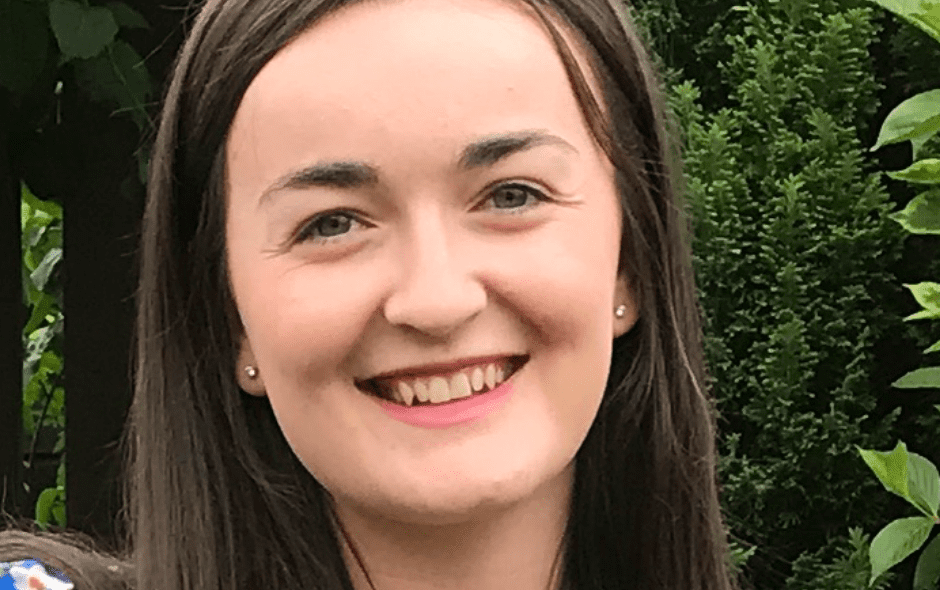Megan has been living with epilepsy for three years and was diagnosed whilst studying at university. Here Megan shares the challenges she has faced and how epilepsy has affected her.
How did you feel when you were first diagnosed?
I was diagnosed in 2017 during my first year at university after having two seizures in my sleep and a tonic-clonic one when I was awake.
My knowledge of epilepsy was very limited. When diagnosed I thought of epilepsy as someone having seizures caused by bright flashing lights.
This misconception was based upon warnings at the start of TV programmes and films. I was confused and overwhelmed, to begin with, and in a state of denial.
Nobody in my family had epilepsy and I thought ‘surely I would’ve developed it or shown signs when I was very young not when I’m 18’.
Where did you have your first seizure and how did you feel?
I only knew that I had seizures in my sleep due to having an incredibly sore tongue in the morning and noticing that it had been really badly bitten.
When I went to see my GP she told me that that’s what she thought had happened and referred me to have an appointment with a neurologist.
My first awake tonic-clonic seizure was in my flat in halls which was witnessed by my flatmates.
They all helped me and made sure that I was safe and as ok as I could be, phoned an ambulance, came in it, and waited with me in A&E.
While I remember very little about the whole experience, I do remember them being in the ambulance and in A&E with me. I am still very grateful and consider myself lucky to have had such lovely flatmates.
What type of seizures do you have? How does it affect you?
I have tonic-clonic seizures, except for the two in my sleep before my diagnosis. My seizures are somewhat controlled by two medications.
After seizures, I tend to feel very disorientated and confused as to what has just happened.
Some people have an ‘aura’ or something that lets them know that they are about to happen. However, I have no warning that it is going to happen.
What challenges have you faced since being diagnosed?
Being diagnosed during my first year at university presented additional challenges.
Moving out of my house and adapting to university was a big change but adding my diagnosis of epilepsy on top of that made it more challenging.
Suddenly, I had to become more cautious of how many hours and the quality of sleep I was getting each night and the quantity of alcohol I drank since these were my only noticeable triggers, to begin with.
Having to explain and justify to people why I either wasn’t drinking a lot or not at all is still tiring.
One of the most annoying things about having epilepsy was having to hand back my driving license, so now my passport is my only form of ID.
In order to get my license back, I have to be 12 months seizure-free.
This makes it even more frustrating and upsetting when I have a seizure as it puts me back to day one, no matter how close I was to 12 months seizure-free.
Did your diagnosis affect your university studies? If so, in what way?
I was lucky in that my diagnosis did not affect my studies as I only had seizures a few times a year.
What kind of support have you received from your university?
My personal tutor was supportive and recommended that I applied for extensions or special circumstances on my assignments when I felt I wanted to.
This meant that my epilepsy would be taken into consideration if I received a mark considerably lower than normal and avoided any lateness penalties.
I only did that in my final year though to reduce the stress and pressure on myself when completing my work, particularly my dissertation, as my epilepsy nurse and I had identified stress as another one of my triggers.
We always say that epilepsy is more than seizures. Do you feel this has been your experience?
I would definitely agree that epilepsy is more than just seizures. I have to consider my seizure triggers when I do things but at the same time not get too fixated on them.
Also, various circumstances have identified new seizure triggers for me to consider.
What would you say to someone who has been recently diagnosed?
I would encourage someone not to be afraid to talk about it, seek support and ask questions to their neurologist, epilepsy nurse, or GP.
While they might not know all of the answers it can be reassuring to talk to someone with more expertise.
One of the most important things is to not compare yourself to other people.
I have learned that everyone has different experiences, is diagnosed at different stages in their life, and that there is a wide range of medications for people to take at different dosages.
Just because someone has had a dreadful experience on one type of medication, does not mean to say that you will. This is definitely easier said than done though.
If you would like to share your experiences of living with epilepsy, please email David Coates our Communications Officer at dcoates@epilepsyscotland.org.uk or call 0141 427 4911.




